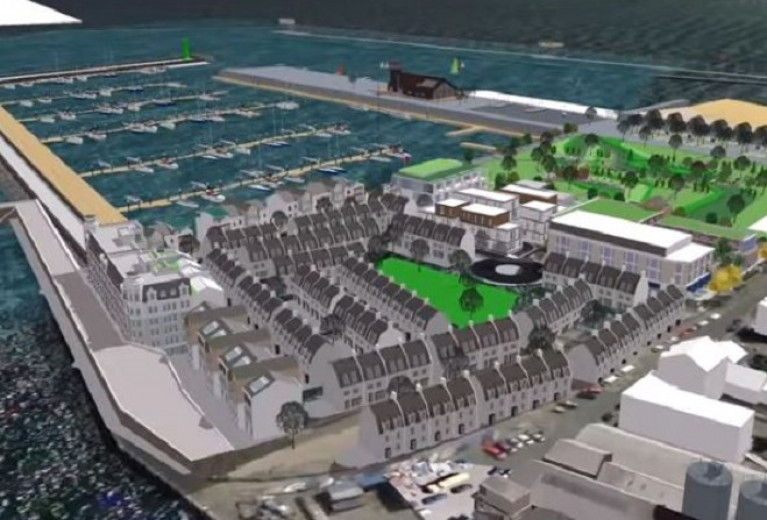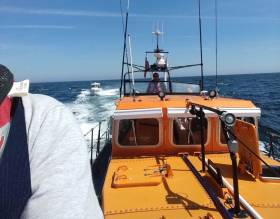Displaying items by tag: Ramsey
Isle of Man: Further Calls for Ramsey Marina Scheme to be Scrapped
On the Isle of Man, a campaign group opposed to a proposed £100 million marina in Ramsey says recently submitted revised plans for the scheme have not allayed their concerns.
The new plans by Ramsey Marina Ltd see the original design effectively rotated through 90 degrees and reduced in size from 12 hectares down to 7.
The company claims "fake news" has spread about the scheme and believes their project could actually benefit wildlife in the area as well as providing economic benefits for the town.
Founder of Save the Bay, Geoff Court, disputes that, and says members of the group aren't opposed to any form of development in the town.
This according to Manx Radio which includes a link to a podcast from the group.
Manx & NI Lifeboats Assist Broken Down Angling Vessel
#RNLI - Ramsey RNLI on the Isle of Man launched its all-weather lifeboat Ann & James Ritchie yesterday afternoon (Wednesday 23 May) to render assistance to a day angling vessel with three people on board.
The 21ft vessel had broken down seven miles south-west of Burrow Head in the Irish Sea. In fair weather conditions and a slight sea, the Ramsey lifeboat with acting coxswain Ali Clague at the helm located the stricken vessel at 1.20pm, 70 minutes after launch.
A tow was safely established, and it was advised by Belfast Coastguard that the lifeboat should bring the vessel towards Donaghadee on the Ards Peninsula.
Donaghadee’s all-weather lifeboat Saxon was tasked to rendezvous with the Ramsey crew and the two lifeboats met approximately one mile to the west of Mull of Galloway lighthouse at 3.25pm where the tow was passed.































































